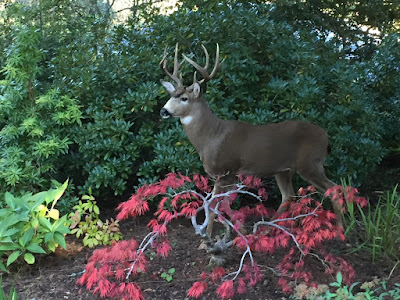Recharging Our Batteries
Winter is here. Hanukkah and Christmas have ended, and Kwanzaa has just begun. The longest night has passed. Little by little, almost imperceptibly for now, the light is returning, both to the skies and, I hope, to our lives. As we look forward to the end of 2020, I see places for great hope in the year to come. Whatever the future holds, we know that there is much hard work to be done. Our racist systems and structures did not spring up overnight, and it will take time, energy, and effort to dismantle them all. We must be focused and act with intention. We must be strategic, single-minded, and persistent. We must persevere when we are weary. Still, we need to have strength to do the work; we must rest and regain our energy. So as this seemingly endless year finally comes to a close, I offer some music videos to lift our spirits... I start with my favorite new discovery, Portland's Resonance Ensemble. If you aren't yet familiar with this group, be sure to check ...

